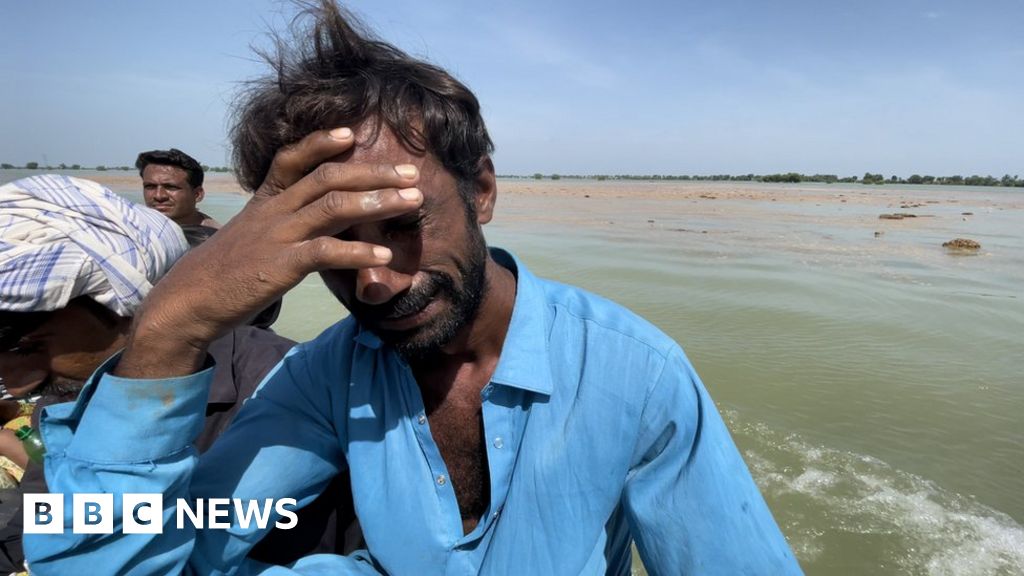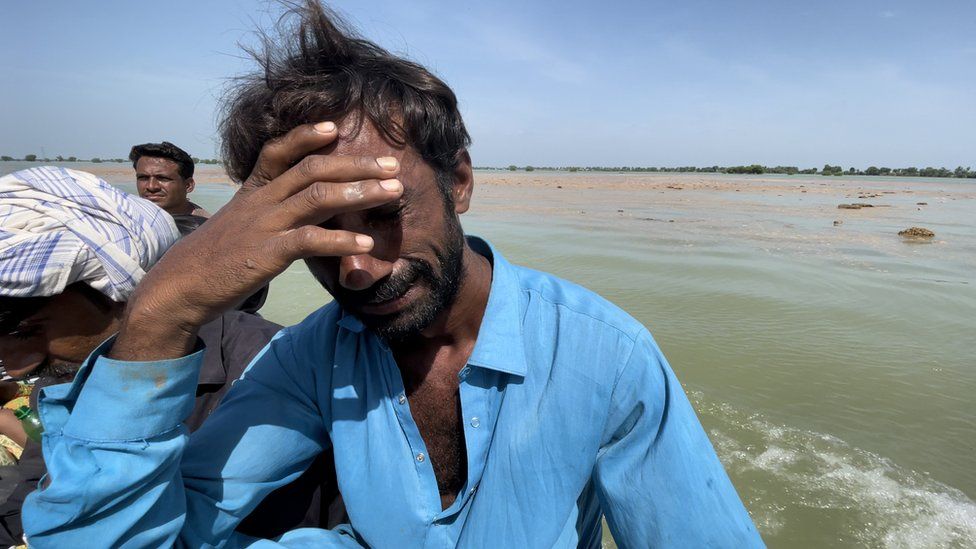
People in southern Pakistan face yet more devastation after record floods blamed on climate change submerged a third of the country, killing more than 1,100 people.
A surge of water is now flowing down the Indus river, threatening communities in southern Sindh province.
Local officials say 1.2 million people have been displaced in Dadu district in Sindh, where hundreds of villages are submerged – and there is still more water coming.
Mudslides and flood waters are travelling down from the mountains towards villages in this district.
The military is evacuating the stranded by plane and many others by boat. Thousands more are still on the flood path and need to be moved – but there isn’t much time.
An official who is part of the operations on the ground tells me they’ve been working in the region for a month now.
“More water is coming, we are starting to see it. There is too much need, not enough of us, but we are doing our best,” he tells me before getting on a large boat.
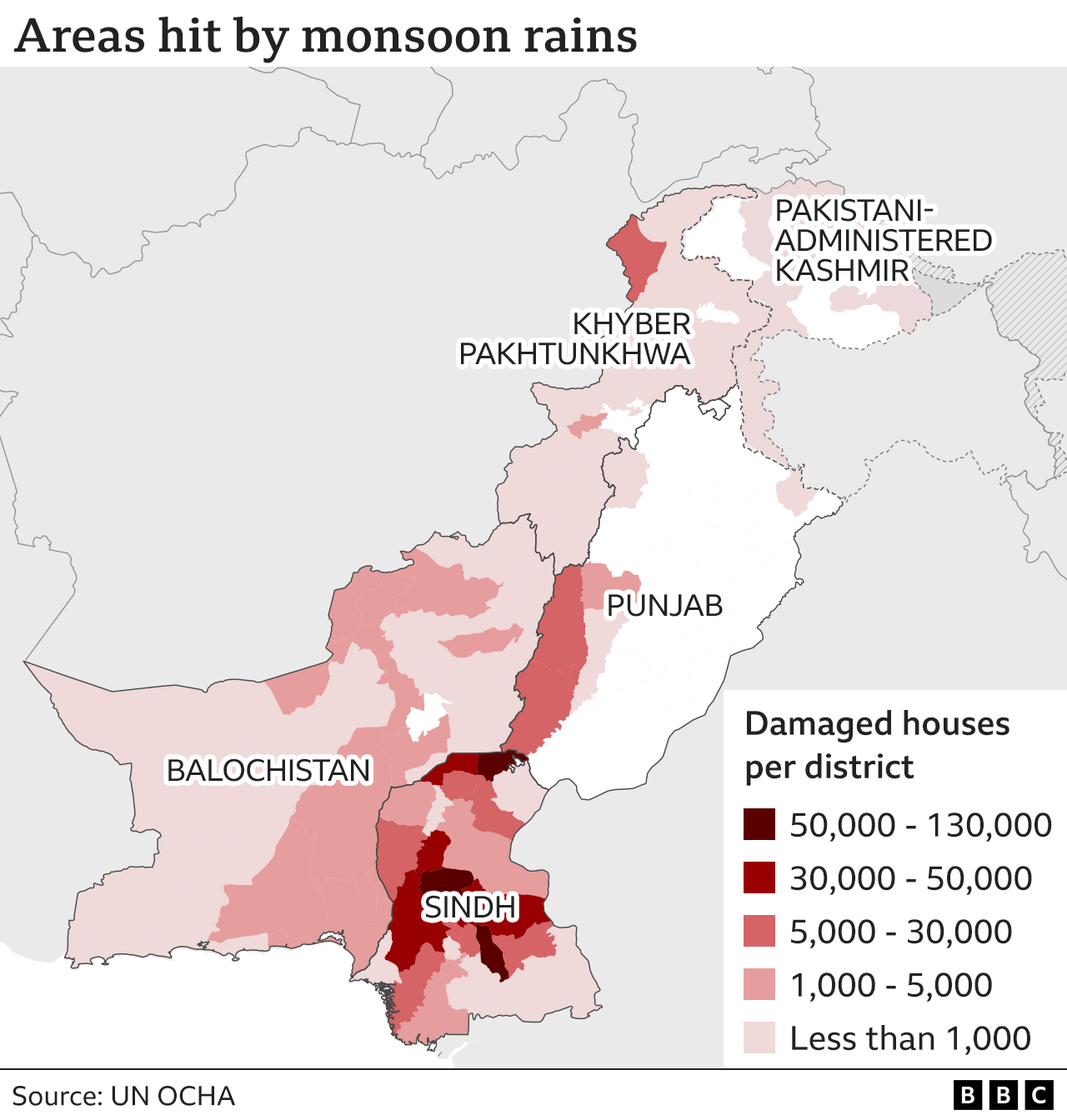
It can take hours in the water, as the villages are far from each other.
In Khairpur Nathanshah, the military, aid workers and villagers are all racing to get people to dry land when we join them on a boat.
After some time in the water, we come across a village, where scores of people are standing outside their flooded homes.
Dozens climb aboard, but not everyone can be rescued on this trip and the boats will need to return. For one man, the uncertainty that help will return is unbearable.
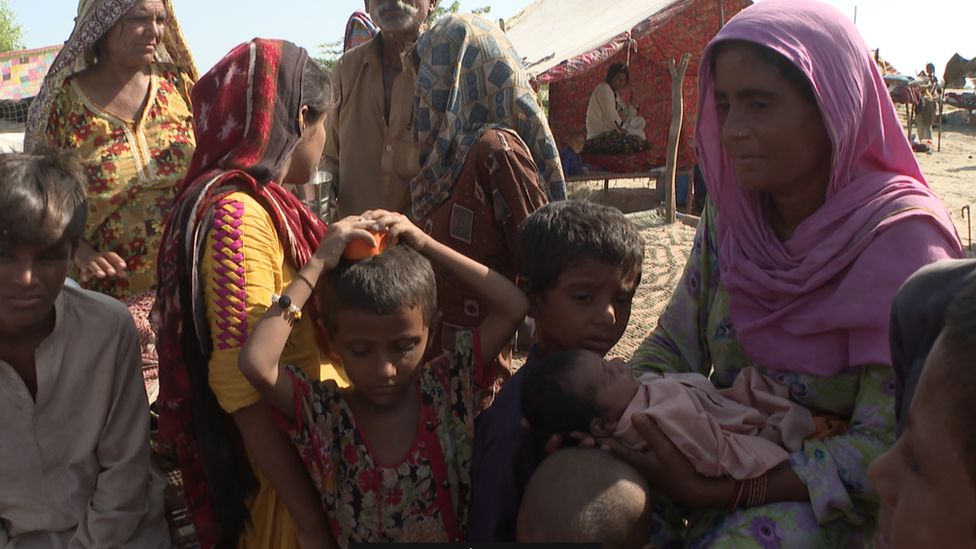
“I left my family back at the village because I need to go and find food. But I don’t know when the next boat will arrive and when I’ll be able to return to them,” says Perviz Ali, his voice trembling before he breaks down.
On our way back to dry land, we come across more people and stop to help them. The group of four men have been wading in the water for hours – three boats had gone past them in a rush to get to more villages. For one of them, it was too long a wait.
“Our friend Ghulam drowned just moments before you arrived, he slipped and he was swept away. We couldn’t save him. He’s gone,” said one of them, Zahid Hussain.
I ask Mr Hussain what made him decide to leave.
“The water level was as high as my head in my house, I knew that if I didn’t leave now, I will drown.”
In another part of Dadu, on the roadside, families do not even have tents or any kind of shelter. For many, this has been going for weeks, living in the open with nothing.
“Our children are hungry, we’re not getting any help. Why is no one doing anything? We’ve lost everything, why is no one helping?” says Rafiq, a mother of three children, all under six years old.
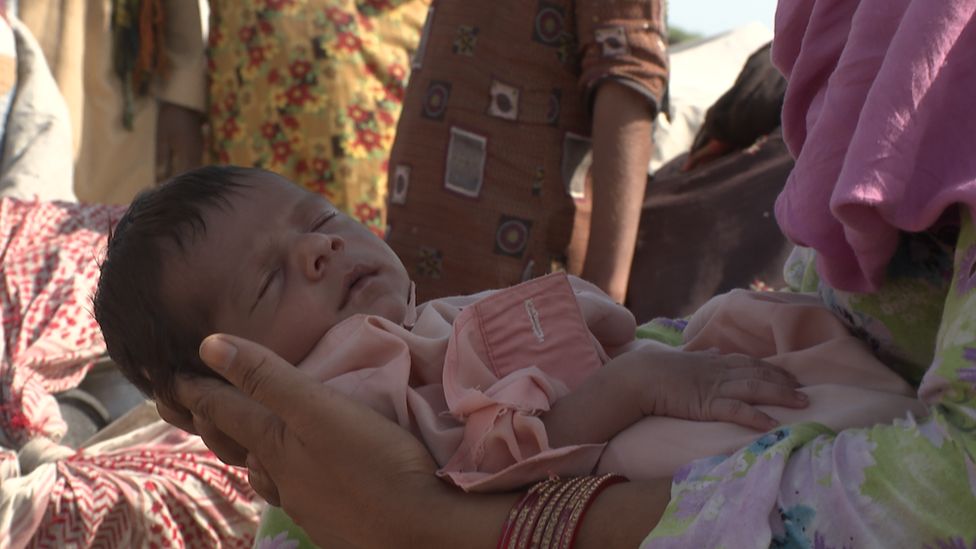
These families tell me that of course they are heartbroken about what has happened to them, but sadness is turning into anger that their situation is not changing. They feel helpless and frustrated with the authorities who drive pass them daily.
Not far from Rafiq, Shabana is cradling a one-month-old baby, born just before the floods arrive in her village. She is hungry, but so is her mother and she cannot breastfeed little Rizaaq.
“I have no milk to give. I have been living here for two weeks – nobody has even given anything. We struggle for food every day. No one has come to even bring milk for our babies. I am afraid for him,” the woman says.
The roads on either side of this district are treacherous – they’ve been damaged by the floods, causing hours of queuing traffic.
Delivering aid here is going to be a mammoth task.
